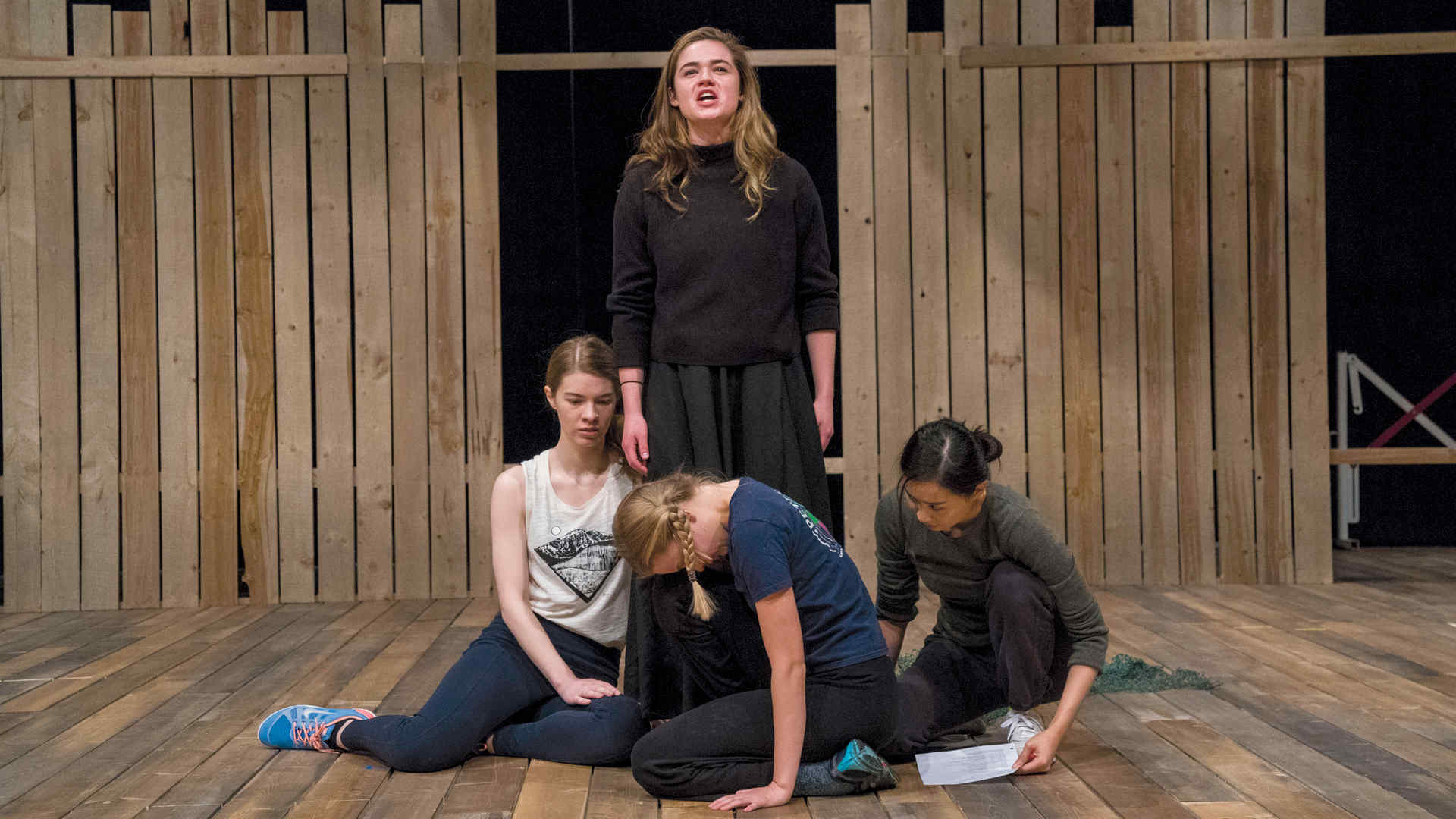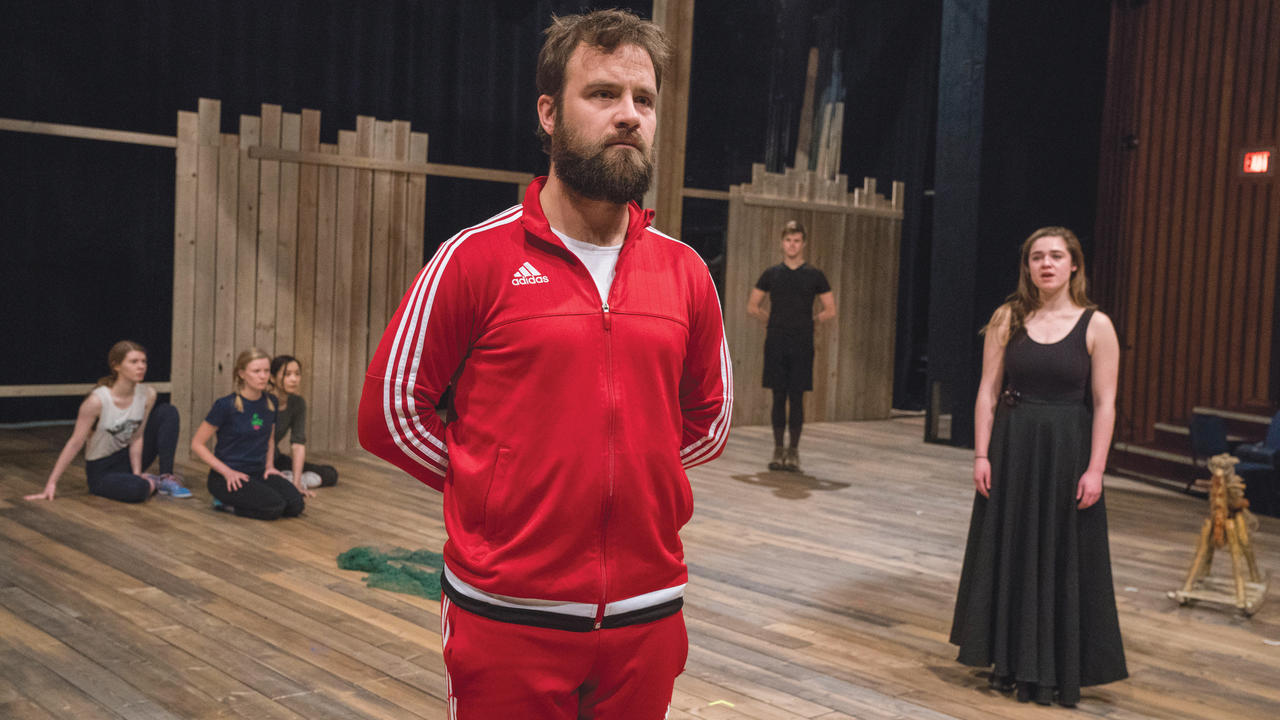
Euripides' Trojan Women
Susan Jackson, Juilliard's editorial director, spoke with Ellen Lauren, who's directing the fourth-year actors in Euripides' timeless tragedy.
Euripides’ Trojan Women takes place after the Trojan War, and the women who survive are in a destroyed city, their husbands dead and living family members about to be enslaved. “I think that it’s all actors’ responsibility and privilege to pass along this document of human suffering and resilience, of living in the face of utter despair,” Ellen Lauren said.

“Showing the degradation of the aftermath of war through the eyes of the defeated, The Trojan Women is never not relevant,” Lauren said. “With its emotive and lyric power, it’s ultimately about the self and the other, the conscious act of one group to annihilate another. This couldn’t be more appropriate to our present moment in history.”
Trojan Women depicts “a blasted landscape where these women are just trying to figure out how to navigate the new reality of their lives,” Lauren said, but bleak as it is, “every time it has been read or performed for over the last 2,500 years, it has reaffirmed and renewed what human beings provide for each other through theater, through art. It gives hope.” For instance, at the beginning of the play, “Hecuba rises up and actually speaks her way back into existence. She makes the choice not to lay in the dirt. We all need to just be in the room with that and be astonished by what might be latent inside of us all—the courage to rise up against what seem like impossible odds.”
Tickets for Trojan Women, which runs February 9-17, are available for $20 or less